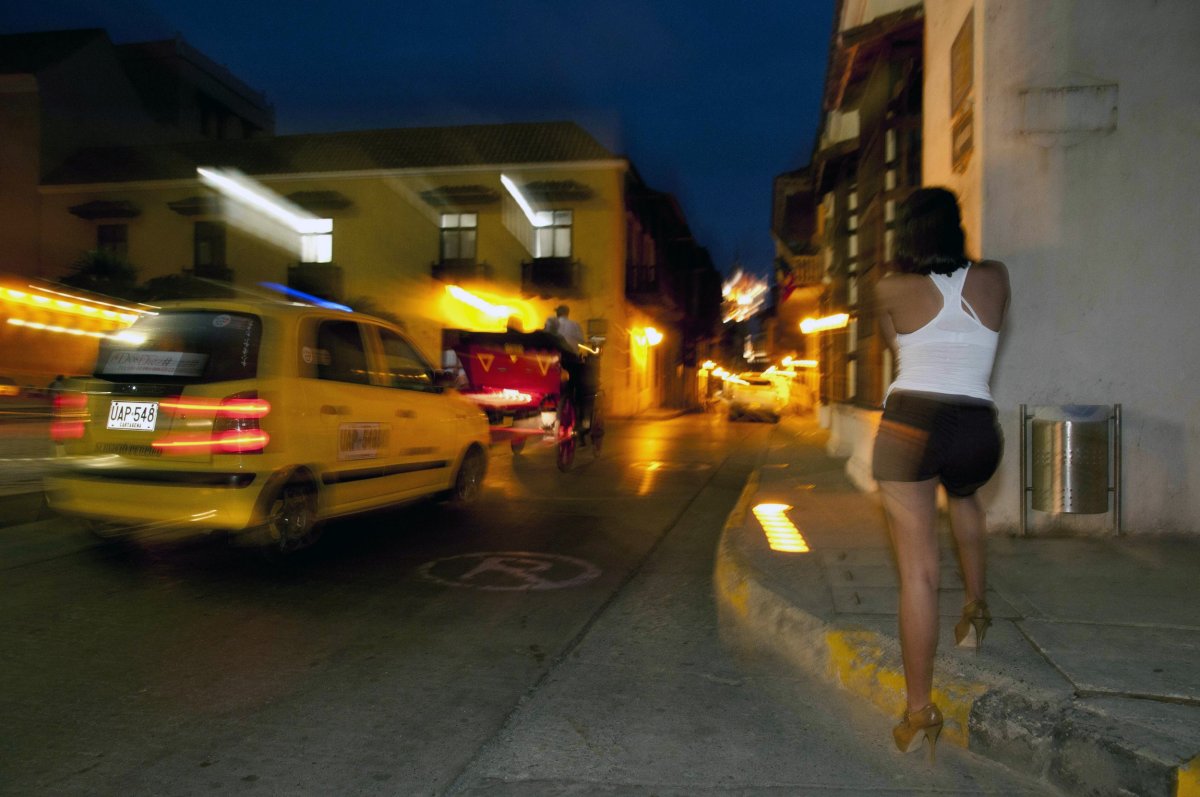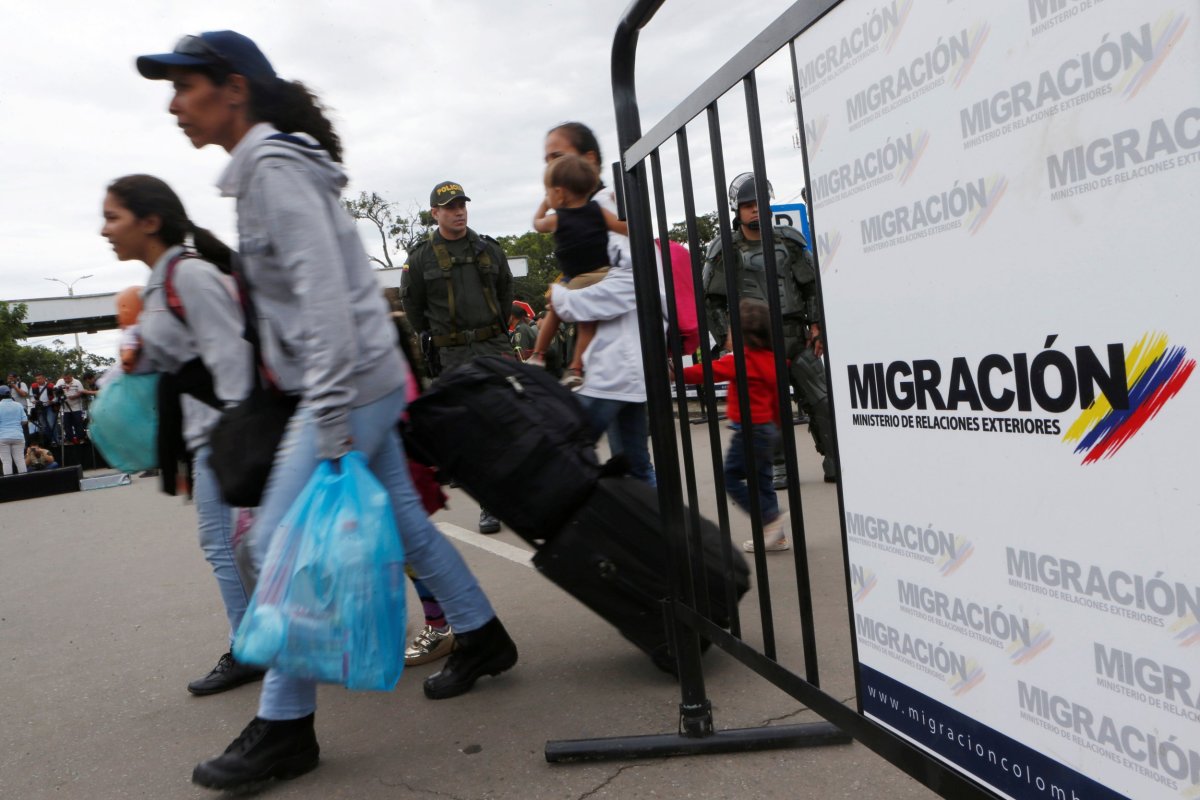Venezuelan women in Colombia are being driven into prostitution to survive, as the country's citizens continue to flee political repression and economic crisis at home.
A Sky News investigation of the sex trade in the Colombian town of Cúcuta found a disproportionate number of Venezuelan women working the clubs and street corners of the border town.
In one brothel of 60 women, 58 were from Venezuela and just two were from Colombia. One woman, a mother of two who was a ballerina and businesswoman in her home country, told Sky News, "I would give this up if there was any other option. This is a shameful job, but what option do I have?

"I have to make money to look after my children and feed them," the woman continued. "There is nothing in Venezuela. The only way to put food on the table for my children is to travel here to Colombia and sell my body."
Another woman, the mother of a 1-year-old, said she was a hairdresser before the deepening crisis forced her to flee across the border in search of new opportunities. "If things ever get any better in Venezuela, I'd love to set up my own business," she said. "Anything would be better. I do this because I have to do this. I don't do drugs, I don't drink. I just do this. If I could do something better, I'd do it… and I'd stop this straight away."
Their illegal status in Colombia makes it even harder for the women to find secure and safe employment. As such, they are pushed into the risky and unstable sex trade.
Many other Venezuelans have found their way to the city of Cúcuta, sleeping rough in the hope of finding any kind of employment. The Sky News investigation also discovered smugglers operating across the border, ferrying contraband to Colombia, where it can be sold at a much higher value, given the crashing Venezuelan currency.
At least 2.3 million people have already fled the country, with as many as 5,000 people crossing the border each day. Most have found their way to Colombia or Brazil, with others traveling as far as Ecuador, Peru and the United States in search of a better life.
The influx of refugees is causing tensions with neighboring nations. In Brazil, soldiers have been deployed to protect refugee camps after one was torched by angry locals earlier this week. Colombia sent extra security forces to its borders to help deal with the flood of new arrivals.

Meanwhile, the situation in Venezuela is getting worse. On Monday, President Nicolás Maduro introduced a new currency to replace the hyperinflated bolivar. In launching the "sovereign bolivar," the government knocked five zeroes off the value of the old notes, reducing inflation by 90 percent.
But citizens struggled to get their hands on the new money, with some residents in Caracas, the capital, reporting a cap of 10 sovereign bolivars per day at cash machines. Unsure of what to charge customers, many businesses closed their doors on Tuesday. The government said the new currency had been pegged to a new cryptocurrency called the petro, but Americans have already been banned from buying it, and experts are deeply skeptical of its value.
Once one of the wealthiest countries in South America, Venezuela's economy has been crippled by falling oil prices and a rigid financial policy. The government has been unable to import vital foodstuffs, medical supplies and fuel, while citizens grapple with a near-worthless currency. Maduro blamed a U.S.-backed "economic war" for the crisis, while the International Monetary Fund called the situation "a profound economic and social crisis."
Uncommon Knowledge
Newsweek is committed to challenging conventional wisdom and finding connections in the search for common ground.
Newsweek is committed to challenging conventional wisdom and finding connections in the search for common ground.
About the writer
David Brennan is Newsweek's Diplomatic Correspondent covering world politics and conflicts from London with a focus on NATO, the European ... Read more
To read how Newsweek uses AI as a newsroom tool, Click here.








